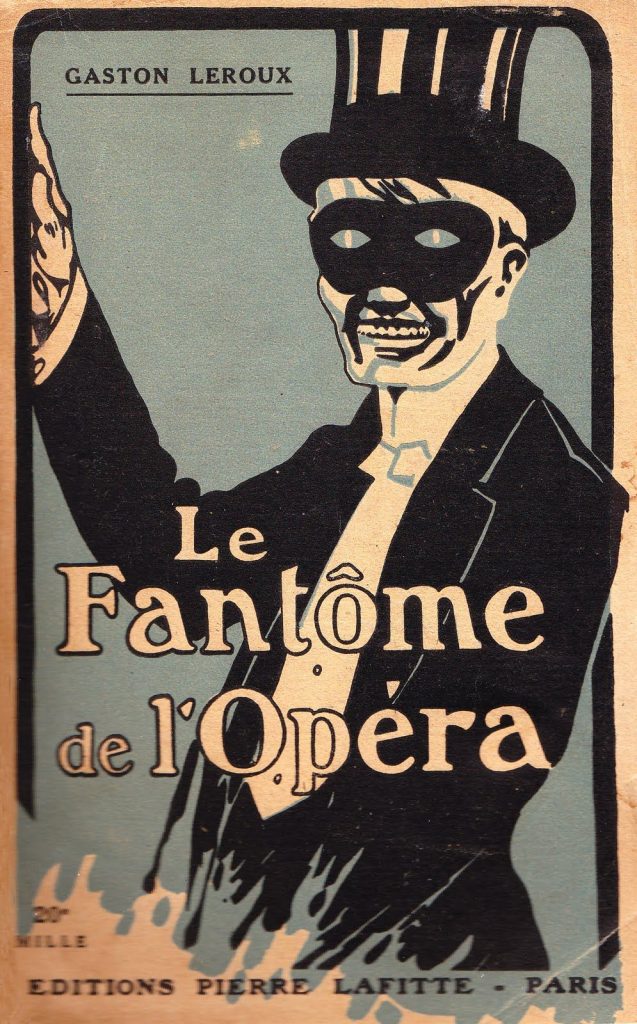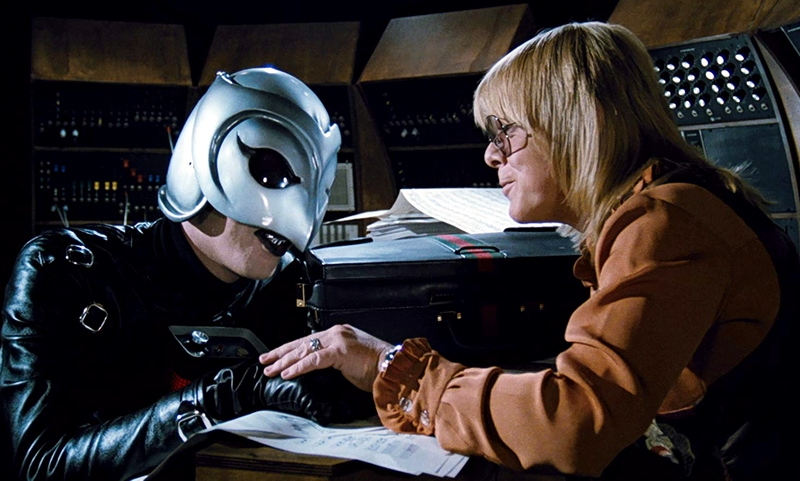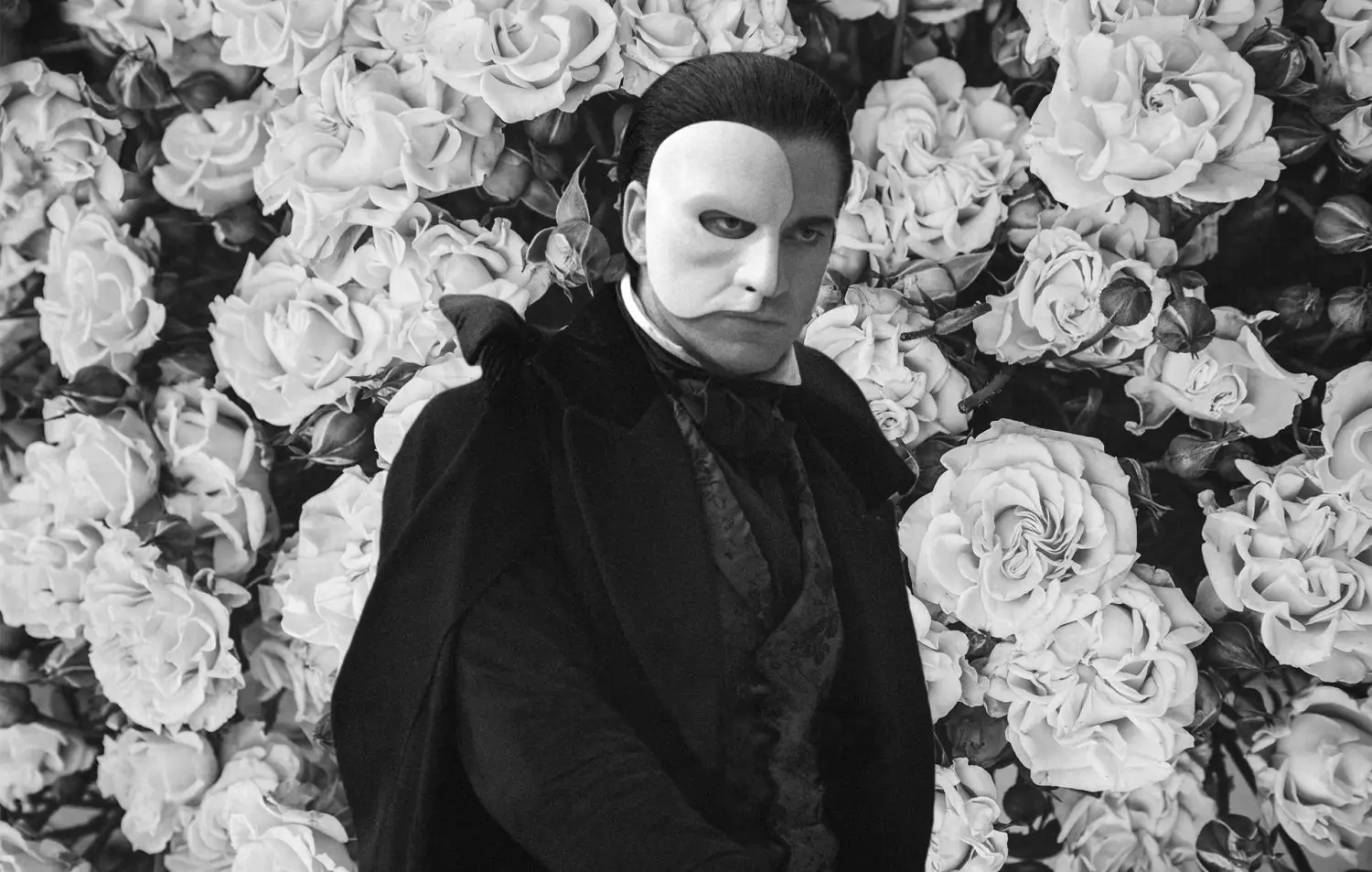Should these commands be ignored, a disaster beyond your imagination will occur.
I remain, gentlemen, your obedient servant, O.G.
Phantom of the Opera (musical), Andrew Lloyd Webber/Richard Stilgoe
They call him O.G. But O.G. doesn’t only stand for “Opera Ghost”. It means ‘original’. Foundational. And the Phantom of the Opera is is the O.G. indie artist. Before he built his lair around the sewer Seine and filled it with the entire inventory of Yankee Candle Company, there was no such thing as underground music. Now, the independents are the lifeblood of the music industry, and our favorite chandelier dropper is their founder. I checked my POTO references and this year’s anniversary adaptation, Phantom of the Paradise, reveals the O.G. behind the mask. The dark composer, defiant of convention and dead to the world.
The Phantom of the Opera is the O.G. Indie Artist

It’s actually true with every Phantom adaptation. From the dark room to the dark web, from the stage to the screen. But it all started with the novel, serialized by Gaston Leroux exactly 100 years ago. Leroux was a bit of an indie himself, who rather suddenly left journalism to start writing fiction. He chose to serialize Phantom in the newspaper instead of going to a publisher, and he even co-founded an independent film company, Société des Cinéromans. It’s little wonder Leroux’s novel features an unappreciated genius. Any writer can create a demented psycho. Leroux made a demented psycho who is writing a masterpiece.
I will play you Mozart, if you like, which will only make you weep; but my Don Juan, Christine, burns.
Le Fântome de l’Opera, Gaston Leroux
What really sets the Phantom apart – besides the musicality, the mirror, and the magical lasso – is that he is creating something . Something too dark to be accepted by the favored people in Opera House Heaven. An opera titled Don Juan Triumphant! In the novel “it must be finished first! Quite finished!” before it can even be heard, but a few adaptations have featured this work of sick genius. Don Juan plays a crucial part in Andrew Lloyd Webber’s world famous musical adaptation, partly to showcase the difference between the Phantom’s sexy goth show and the mindless drivel common folk enjoy. Whether or not his work is performed, no adaptation can mask the fact that the Opera Ghost is an artist. When he’s not committing acts of terror, he’s wearing a mask, performing in the dark, forcing his opinions on the opera’s managers and patrons. He’s writing music no one in Paris will ‘get’. Sound familiar?
According to this very informative article from Vice, 2005 is the year the Phantom’s dream came true. Independent artists reached acclaim. It was in 2005 that Green Day thumbed its collective nose at the Bush administration and LCD Soundsystem released their bitter hit, “Losing My Edge.” In fact, LCD’s James Murphy may actually be the Phantom. (He literally formed the group underground. And the four and a half minutes of slapping in the music video below may explain what happened to his face). The spirit of the Phantom continued to possess the music industry in later years. Quickly skim Last.fm’s collection of “dark Indie music” and you’re awash in underground artists who have the Phantom of the Opera inside their minds. The lyrics of “Waiting for a Girl” by Chaos Mon Amour could literally have been written by the Phantom for Christine. Then there’s A Spectre is Haunting Europe, a band named after the first line of The Communist Manifesto that plays with Phantom-esque rage. Someone’s singing in their mirror and it’s not just Karl Marx. Meanwhile, pop duo Broods is as bold and as angsty as a chandelier drop.
Sinister similarities aside, the spirit of freedom is crucial to being an indie artist. So how does the Phantom, basically trapped in a basement because of his face, qualify as the O.G.? Just like today’s dark artists, the Phantom is curious about that other, privileged world above. He secretly longs to play his music in the light, to catch every rose thrown onto the stage. Most of the time, his face stops him from trying. In Phantom of the Paradise, his face is the result of attempted fame.
This film is the story of that search. Of that sound. Of the man who made it, the girl who sang it, and the monster who stole it.
Phantom of the Paradise (1974)
Phantom of the Paradise is 45 years old and it deserves celebration. Not just for making it this far as a movie musical with a huge cult following. This year is a celebration of the film’s message: a deal with a label is a deal with the devil.
It all begins when Winslow Leach, our soon to be Phantom played by William Finley, highjacks a kitschy performance by everyone’s favorite band, The Juicy Fruits. Swan, founder of Death Records played by the brilliant Paul Williams, hears this weirdo playing “Faust” and knows he’s finally found the music he needs to open “his Xanadu, his Disneyland”, a music hall called The Paradise. Swan’s henchman tells Leach the good news, that the Swan is interested in his music, and asks for a couple of songs to “look at.” Oh, and they’ll definitely get back to him.
Needless to say, Leach never hears back. After several innocent attempts to talk to Swan who, surely, just forgot to tell the composer his music’s being used to open a big show, Leach finds out how much power a man in the music biz wields. He gets thrown out of Death Records and framed for pushing drugs. Then, Swan makes him a “volunteer” for a dental experiment – all his teeth are pulled out and replaced with metal ones. Finally, when Leach escapes prison and starts rampaging through Death Records, he slips and gets his face smashed by a hot record press. Thus, the Phantom of the Paradise is born.
The film proceeds into the dark world of exploitation as Leach, Phantom-ed from top to bottom and with nothing else to lose, puts his trust in Swan again. Leach promises not to go caped-crusader-crazy on the Paradise, just so long as his music is played his way. A literal devil’s bargain. (Really, they sign in blood and everything). But, of course, the devil goes back on his word and Leach’s rock version of “Faust” and his soul are both doomed.

That’s why he wears the mask. It’s a sign to indies of the future. Keep to yourself. Trust no one.
There’s a reason ‘Swan’ is a devil-spawned record producer. And there’s a reason the Phantom’s original novel and almost every version after that has Faust in there somewhere. Being strange, bold, and passionate is isolating. It tempts you to reach out for an agent, an audience, for anyone who will listen. Living and working in this state, you might feel the urge to make a bargain. You may feel weary of the ear-piercing popular music. Or you may simply have a vision that no one appreciates. When oh when will your angel of music bring you into the light?
Whether or not your angel comes, an indie knows the sad truth. The world “up there”, up in the boxes at the opera, up at the top of the charts, will just forsake you. That, my friends, is what makes Phantom the O.G. indie. He’s suffered the loneliness of the underground and the heartbreak of false hope. He knows what it means to love music, and he knows the torture of its destruction by uninspired saps. That’s why he wears the mask. It’s a sign to indies of the future. Keep to yourself. Trust no one.
Some of you may find the Phantom’s philosophy cynical. You may think every artist should try to make it big, should stand proudly on a platform stage for the rampant applause of millions. Reader, remember! According to contacts made with Death Records, “all articles that are excluded will be deemed included.” You’ll wind up giving everything to the money mad demon who bought you.
Lately, even the indie world is touched by the corruption above O.G.’s lair, imitated and monetized by hypocrites. So now what? Do you build an enchanted forest underground? (POTO 1990). Start an amusement park on Coney Island? (Love Never Dies). Or reincarnate with a ponytail? (POTO 1989). It doesn’t really matter. Just be true to your music, true to your face, true to your heart. That’s what our O.G. would do.




